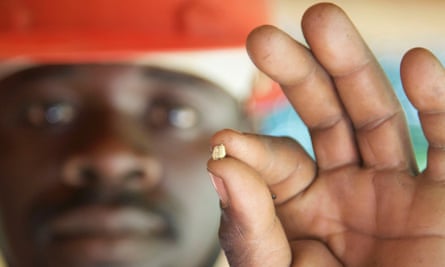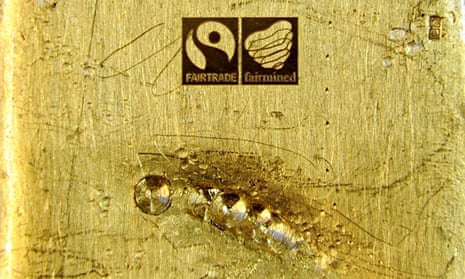A human ‘ring of gold’ will be formed outside St Paul’s Cathedral on Wednesday to mark the start of a new campaign encouraging couples to tie the knot with Fairtrade wedding bands.
The “I Do” campaign backed by top designers including Katharine Hamnett will urge brides and grooms to buy Fairtrade gold to help improve the lives of the people who mine gold, and the environment.
The initiative from the Fairtrade Foundation (FF) also aims to increase consumer awareness of Fairtrade gold, which was introduced in the UK in 2011 but is less well-known than mainstream Fairtrade food and drink products.
More than half of people in an ICM survey undertaken last February thought that buying Fairtrade products was the responsible thing to do, but only 16% had heard of Fairtrade gold, compared to 64% who knew of Fairtrade tea and coffee.
The FF estimates that if 50,000 couples chose Fairtrade-certified gold wedding rings, £650,000 could be generated to help the poorest mining communities in the world transform their lives, health and working conditions and support community projects such as schools.
Around the world, some 15 million artisanal and small-scale gold miners produce 10-15% of the world’s supplies, but they work in notoriously dangerous conditions and are poorly paid by middlemen for their gold.
Gold mining is one of the world’s most dangerous industries with miners earning as little as $1 per day. Daily contact with toxic chemicals used to process gold such as mercury, cyanide and nitric acid means workers risk disease, serious injury, premature births and even death.
Securing Fairtrade certification guarantees a fair price – 95% of the London Bullion Market Association price – for mining groups’ gold, and a premium of $2,000 (£1,300) per kilogram. Since achieving certification in 2010, mining organisations in Peru have invested in healthcare, education and improved equipment.

To meet Fairtrade standards, mining groups are helped to improve their working conditions, with safety measures implemented in the mines, safer handling of the mercury used to extract the gold and children banned from working in the mines.
The UK initiative will feature an exhibition showcasing the work of designers working with Fairtrade gold, including Pippa Small, whose jewellery is sold at fashion website Net-a-Porter and at Harrods. Stephen Webster and Beaverbrooks the Jewellers also stock Fairtrade jewellery.
Amy Ross, project manager for the Fairtrade Gold and Precious Metals programme at Fairtrade International, said: “By putting the interest of the most disadvantaged miners around the world, and the environment, at the centre of their work, Fairtrade jewellery designers are revolutionising the industry and paving the way for a fairer, and truly beautiful, wedding ring for UK’s couples.”

Comments (…)
Sign in or create your Guardian account to join the discussion